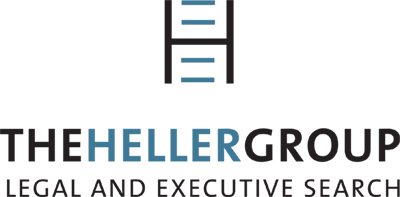One of the most exciting moments job hunting is getting the call for an interview. It’s even better when you ace the interview and feel confident (get some tips on how to do that here). Then the worst part begins – the painfully long wait to hear from the hiring manager. To make matters worse, you start wondering if you should follow up. Will you sound desperate? Or will it show you’re highly interested and motivated for the role?
Don’t panic. Here are a few ideas on post-interview etiquette and how to appropriately follow up.
1.Always Send a Thank You Note
This recommendation should not be a surprise but it’s always worth repeating: write a thank you note to the interviewers within 24 hours of your interview. If you met with multiple people, send a separate note to each person.
According to a survey completed by CareerBuilder in 2011 (found here), approximately 22% of hiring managers said they are less likely to hire a candidate if they don’t send a thank-you note. Don’t take the chance that one of your hiring managers falls into that 22%.
Knowing to send the thank you note is the easy part. The tough question is whether to send it via email or if it should be hand-written. The same CareerBuilder survey noted above indicates that most hiring managers say an e-mail thank you is just fine. Some traditional industries such as financial services indicate email is not the preferred method but is still acceptable. Practically speaking, you want your thank you note to arrive quickly, so getting hand written notes to the interviewers within 24 hours may not be a realistic expectation. If in doubt, stick with the email thank you. If you could manage either, use your best judgement. Was the hiring manager a person who would appreciate a hand written note? If so, deliver it personally to reception the following day.
When it comes to the content of the thank you note, keep it brief but take the opportunity to thank the interviewers again for their time, and to reiterate your interest in the role. If you can, try to give some detail (briefly) about what sparked your interest in the interview, and why you might be a good fit. Ideally, ask the approximate timeline of the hiring process during the interview and leave this question out of your thank you note.
2. Further Follow Ups
If you don’t receive a response to your thank you note, or any other correspondence from the company, it can be hard to know if and when you should send a further follow up. There are a couple of things to keep in mind here:
- If you had a phone interview, a second follow up is unnecessary. Most companies will only contact candidates who are moving past the phone screening. If you did not make it past the phone screening, you likely won’t be contacted – don’t take this personally. It’s time to move on.
- If you met in person, then a follow up after your thank you is appropriate, however, before furiously drafting your follow up email, take the time to reflect on the role itself:
- Did you like the sound of the position?
- What was your opinion of the people?
- Did you get a sense of the culture?
It’s easy to get focused on a call back without deciding if the job is what you really want. If you’re still eager to be hired, be sure to wait at least a week to ten days before sending your follow up email. This helps to avoid sounding desperate, or even worse, annoying.
- If you’ve been working with a recruiter, follow up with the recruiter along the same timeline. The recruiter can then follow up as many times as necessary with the company, removing some of the guess work for you.
3. When to Stop Following Up
If you’ve sent a thank you note and a follow up email with no response from the company, don’t panic yet. There are a lot of reasons why people may not be responding, including vacations, completing other interviews, business changes, or waiting for a response from other key decision makers. In the best case scenario after multiple interviews, they may be trying to put an offer together including getting all of the required approvals and completing background checks. Take a deep breath and be patient. Whatever you do, do not keep calling or emailing.
At this point, it is best to move on with your job search. If they come back and you’re still available and interested, that’s great for you. However, be sure to consider if the lack of responsiveness is concerning. As noted, there are a lot of reasons for a slow reply, but you should also consider if this is indicative of their communication as an organization. Think about whether this is somewhere you could see yourself working given all of the information you now have.
If you do get a response, at any point in the process, be sure to respond within 24 hours. Even if there’s nothing to add to your previous emails, it’s always great to show your responsiveness and confirm receipt of their correspondence.
4. Don’t Put All Your Eggs in One Basket
If you receive bad news, be sure to respond thanking them for their time and consideration. The fact is, you don’t know what will happen next. Maybe you were their second choice and they may circle back. Maybe you’d be right for another role in the future. Try not to burn any bridges so that you can keep your options open in the future.
When it comes to job searching, it’s best to have “many irons in the fire”, as they say. As much as you may think a place is your dream job or your dream company, don’t rely solely on that one application and interview process. Keep up your job search while you wait, and always be professional, courteous and pleasant in all interactions with the hiring manager. The right job and the right fit will come along, even if there’s a bit of a wait.
Melanie is a Recruitment and Communications Consultant with The Heller Group. She is involved in the recruitment and placement of lawyers into law firms and corporations. Melanie is also responsible for the corporate communications related to The Heller Group.
Image via Bigstockphoto.com


